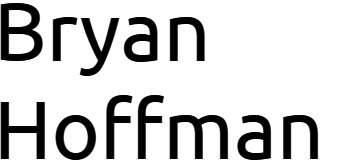Adopt good strategies, and build habits around them.
Look for processes that scale well or exhibit decreasing marginal cost e.g. cooking healthy meals at home in bulk
Sacrificing a minimal amount of resources to prevent larger, future risks e.g. working out or saving money
Plan and manage strategies according to investment principles e.g. budgeting and time-management
Strength training for a small amount of time will have lasting beneficial impacts. An incomplete list of benefits includes improved posture, improved joint function, increased metabolism, increased bone density, &c.
To avoid over-training, bodybuilders will plan to target different groups of muscles on different days, perhaps on some rotational basis.
When an individual executes some strategy, we are discussing the realm of hobbies, investments, and maybe sole-proprietorship type businesses. When multiple people engage in executing a strategy, we have something we can call an institution or an enterprise. I will favor the latter.
An enterprise can be visualized as a function, taking inputs of materials, capital, fixed costs, and variable costs. The application of our function results in an outcome. Note that in some mathematical sense, strategy A + strategy B yields a new strategy C. A strategy can be a collection of sub-strategies.
An enterprise is something that likely needs some degree of management. Management can be thought of as having three levels.
At the top-level, management is strategic. In the middle, the primary aim is faithful and accurate communication, and at the bottom level, every individual is managing their day-to-day.
In harmony, those at the bottom experiment and create novel data and evidence which is communicated and in turn informs and improves the over-all strategy.
Improved strategies result in improved outcomes which, re-invested appropriately, creates further incentives and positive feedback to growth.
For this meta-strategy to work, individuals must be committed to learning. Learning is best accomplished through experiential (active) learning.
When team members are constantly learning and communicating with one another, there is something called informational resonance in the team. Through discussion, writing, and teaching, everyone will have a better idea of what’s going on.
An individual can begin this process personally by adopting some habit like this one:
Capture information (write a lot)
Refine and revise information that’s been captured
Categorize/curate/organize information
Review and improve
In an enterprise, shared knowledge will become an asset, but speaking as an individual, I’ve seen benefits from maintaining a personal wiki of sorts.
In broader strokes, everyone on this planet is on a team, and taking care of this spaceship/planet is an enterprise.
